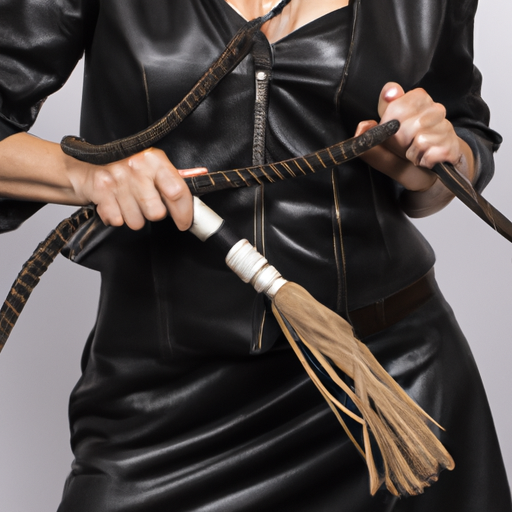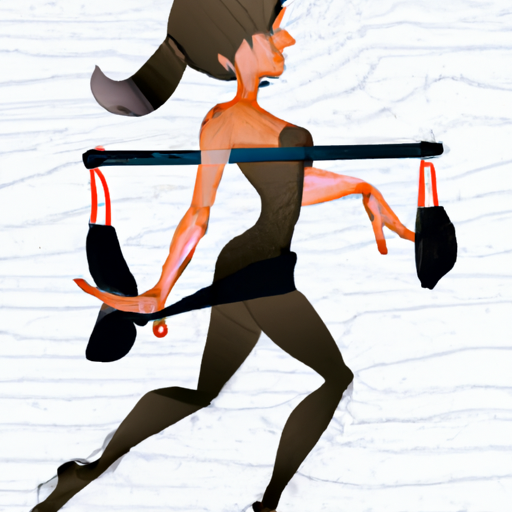You know, I’ve been around the block a few times, seen some things, and learned a thing or two about, well, let’s just say, alternative lifestyles. And one thing that has always piqued people’s curiosity is the world of dominatrices. I mean, who wouldn’t be intrigued, right? So, buckle up, my friends, because today we’re diving into some of the common questions that have been burning in the minds of many about this fascinating and misunderstood profession.

First off, let’s address the elephant in the room – what exactly does a dominatrix do? Well, my friends, a dominatrix is a woman who takes on the dominant role in BDSM activities. Now, BDSM stands for bondage, discipline, dominance, submission, and sadomasochism. It’s all about power play, and let me tell you, it’s not for the faint of heart. A dominatrix can engage in a variety of activities with her clients, from spanking and flogging to role-playing and psychological domination. It’s all about exploring the dynamic of power and control in a safe, consensual, and, most importantly, consensual environment.
Now, I know what you’re thinking – who in their right mind would want to be dominated? Well, my friends, it’s not as simple as that. Many people who seek out the services of a dominatrix are not looking to be physically or emotionally harmed. Instead, they are seeking an escape from the pressures of everyday life, a chance to explore their deepest desires, and an opportunity to surrender control in a safe and controlled environment. It’s all about trust, communication, and mutual respect. And let me tell you, there’s a lot more to it than meets the eye.
So, what are some of the common questions that people have always wanted to ask a dominatrix? Let’s dive in, shall we?
Question 1: ‘Do dominatrices actually enjoy what they do, or is it just an act?’
Well, my friends, let me set the record straight on this one. Yes, dominatrices do enjoy what they do. They are empowered women who take pride in their ability to create a safe and consensual space for their clients to explore their fantasies. It’s not just an act; it’s a way of life for many of these incredible individuals.
Question 2: ‘What kind of people seek out the services of a dominatrix?’
You’d be surprised, my friends. People from all walks of life, from CEOs to teachers, seek out the services of a dominatrix. It’s not about what you do for a living; it’s about what you desire in the depths of your soul. And let me tell you, the world of BDSM knows no boundaries.
Question 3: ‘Is it all about pain and punishment?’
Absolutely not. While some clients may enjoy pain as part of their experience, the world of BDSM is incredibly diverse. It’s about exploring power dynamics, role-playing, and fulfilling fantasies in a consensual and controlled environment. It’s about pushing boundaries and discovering new aspects of oneself.
Question 4: ‘Are dominatrices therapists in any way?’
In a sense, yes. Many dominatrices are skilled in creating a safe and nurturing space for their clients to explore their desires and emotions. It’s not about traditional therapy, but it’s definitely a form of emotional and psychological exploration.
So, there you have it, my friends. I hope this little dive into the world of dominatrices has shed some light on this often misunderstood profession. It’s all about empowerment, exploration, and, most importantly, respect. Until next time, stay curious, stay open-minded, and keep winning. DominatrixCam.net.
How has femdom literature evolved over time?
You know, when it comes to femdom literature, we’re talking about a genre that has seen some serious evolution over the years. It’s like, back in the day, this stuff was considered pretty taboo, you know? But now, it’s like a whole subculture in the literary world. So, let’s take a little trip down memory lane and check out how femdom literature has evolved over time.

Back in the old days, we’re talking like ancient times, there were stories and myths about powerful women who dominated men. Like, think about Greek mythology with goddesses like Athena and Artemis, right? They were strong, powerful, and totally in charge. And then, you’ve got the whole Amazonian thing going on, with warrior women ruling the roost. So, even way back then, there were these inklings of femdom vibes in literature.
Fast forward to the 18th and 19th centuries, and you start to see some more explicit examples of femdom themes in literature. I mean, you’ve got the whole Marquis de Sade thing happening, with his novel ‘Justine’ and other works that explore power dynamics and dominance. It was pretty risqué for the time, and people were like, whoa, what’s going on here?
But it wasn’t until the 20th century that femdom literature really started to come into its own. With the rise of feminism and the push for women’s rights, you see this surge in literature that explores female dominance in a more empowering way. Like, you’ve got authors like Anne Desclos, who wrote under the pen name Pauline Réage, and her novel ‘Story of O,’ which is a classic example of femdom literature that’s all about female empowerment and control.
Then, as we move into the 21st century, femdom literature has exploded onto the scene. With the internet and self-publishing, there’s this whole underground world of femdom fiction that’s pushing boundaries and exploring all kinds of power dynamics. It’s like, people are getting really creative with this stuff, you know? From BDSM romances to psychological thrillers, there’s a whole range of femdom literature out there that’s captivating readers and challenging traditional gender roles.
And let’s not forget the impact of pop culture on femdom literature. I mean, you’ve got movies like ‘Secretary’ and ‘Fifty Shades of Grey’ that have brought femdom themes into the mainstream. It’s like, people are starting to recognize that this is a legitimate genre with complex characters and compelling stories.
So, where are we now? Well, femdom literature has come a long way, baby. It’s no longer this underground, taboo thing. It’s a legit genre with a wide range of subgenres and styles. And the best part is, it’s opening up conversations about power, consent, and sexuality in a way that’s super important.
So, there you have it, folks. Femdom literature has evolved from ancient myths to contemporary novels, and it’s showing no signs of slowing down. It’s a genre that’s all about power, control, and, most importantly, strong, complex women who are unapologetically in charge. And that, my friends, is something worth celebrating.